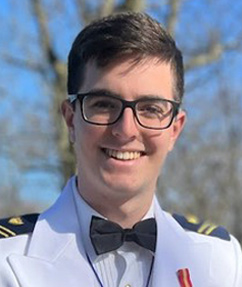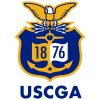
I now write on the plane from Dakar to JFK. Our trip was so busy and so eye-opening it was hard to reflect on it in the moment, and I know I will never forget it.
Our last two days in Senegal were spent meeting with US and local officials. First we met up with members of US Homeland Security Investigations (HSI) who were working in the Embassy. They were able to set up a meeting a Port Security joint task force in the Port of Dakar, allowing us to speak with officers of the Senegalese military, the national police, the national marine inspectors, and the customs authority. Together they not only were able to answer some of our key questions, but they also provided us with some valuable hands-on experience in walking around the port and demonstrating some of the challenges they face in their positions. They even showed us the stolen vehicles they interdicted in shipments from Europe! This experience was not only directly valuable to the project, but also to our future careers are Coast Guard Officers. Especially since some members of the group are going to be Marine Inspectors, we truly did get to make connections with our professional counterparts across the Atlantic.
On our last day, we got the chance to go inside the US embassy and meet with officials from USAID, HSI, the Army, and the Navy. They each had unique perspectives on the key issues facing Senegal, and the ways in which the US can be a part of the solution. Something that stood out in all those meetings, was the global relevance of the US Coast Guard. Given our name, you may not think that our responsibilities extend far beyond directly defending our shores, but the USCG has a reputation for being the world standard in littoral governance, and whether they were working for the US or Senegal, in development, diplomacy, or the military, experts were pining for more Coast Guard involvement. Members of the Army and Navy from the Defense Attaché’s Office cited USCG port calls and training teams in the region as some of the greatest recent successes in US-Senegal relations. They even expressed interest in increasing the number of Coast Guardsmen permanently assigned to embassies in West Africa. Now is certainly an exciting time for any Coast Guardsman interested in international affairs, especially in Africa!
While our last few days were mostly focused on the military, the first half of our trip was more focused on the academic. For our first two days Senegal were spent in Dakar interacting with experts on the local fishing industry. First, we met with professors of marine biology and maritime policy at Dakar’s Cheikh Anta Diop University. They were able to provide us great local insight into the phenomenon of IUU Fishing, and how the government has responded. We then were able to go to the university and meet with local students studying at the university’s School of Fishing and Aquaculture. I think the existence of this school at the capital’s most prestigious university illustrates the importance of the issue for the nation. It was great to speak with them as growing experts in the field, and also as peers, as many of them had similar aspirations, whether that be to enforce maritime environmental laws or to continue their studies in the US.
A unique challenge for me during these meetings was translating. The official language of education in Senegal is French; which I always took in school. At the Academy I have been able to use my electives to take French classes at Connecticut College. Even still, I have never had such an experience translating, and while Dr. LaMonica is a native French speaker, he gave me the chance to interact with the students directly. The meeting taught me a lot, and really boosted my speaking confidence in the language. I also feel like I was able to better foster positive relationships with the students, they were excited to have an American speaking their language, and after the meeting, many were excited to try their English in conversation.
The next day, one of the professors led us into his home neighborhood, an artisanal fishing community in the Yoff district of Dakar. This was one of the most eye-opening experiences of the trip, as we were able to walk the community and experience the local marine economy for ourselves. Not only that, but we sat down for hours with local community leaders and ask questions, all translated from the local dialect of Wolof. Many of these men, the elders of the community, had been fishing everyday since they are 7, and now work to manage and govern the community. They provided a level of hands-on expertise and insight into the local challenges unavailable in any government organization or academic paper and all we learned from them will provide a whole new depth to our report.
On our third day, we got in a van early in the morning with our Wolof translator and drove almost 5 hours north to the city of St. Louis. St. Louis is one of the strongest fishing communities in the country and is located on the border with Mauritania, firmly within the arid Sahel region. On the drive up, one could notice the grasslands fading to desert and the cattle slowly being replaced by camels in the scenes outside the window. When we got there we were greeted by another professor, this one at the local university in St. Louis, he was able to introduce us to the local community elder of Langue de Barbarie, a barrier island community with a cultural and economic basis in fishing. We walked with the men and our translator all day around the city, on the beach where they launch boats, the markets where they sell the fish, the yards where they maintain their boats, engines, and nets. All the while, members of the community were answering our questions on their biggest concerns, including climate change and IUU fishing, and also how they as a community have reacted. The community members once again provided a depth of understanding I could never have found in any library or on any website.
Together, with our conversations at the port, at the embassy, and in Yoff, I feel like I am leaving Senegal with a much better understanding of the situation we have been researching, from a trip that has deepened my understanding and appreciation for Africa more than any other experience I’ve ever had.
This trip is surely one I will never forget, and not simply because of the tremendous professional development I gained meeting with senior leaders and subject matter experts in fields critical to the US Coast Guard officer, but also because of the amazing cultural experience. I was never before able to immerse myself in the French language, or hear the sounds of Wolof while walking the streets. I had never experienced markets like those of Yoff, or witnessed the organized chaos of a fast growing port like Dakar. I will also never forget walking around St. Louis with its old Islamic and French colonial buildings, streets filled with horse carts and modern cars alike, and alleys where the young children cheerfully would run up to us, eager to play with the strange looking visitors.
This past week has been perhaps one of the most impactful of my life; I went to place like none other I’d ever visited, and broadened my perspectives in meeting people with whom I never thought I would get to speak. I am truly grateful for the unique opportunities that the Academy and this project have afforded me, and I cannot wait to return and present this project and all we have learned to my friends and mentors. And hopefully, feed into the excitement for next year’s project.
Next month, I will graduate and be shifting my focus from Africa to the Arctic, as I move up to Alaska for my assignment as a Deck Watch Officer on a buoy tender. At that point, if you have questions about that, or anything in my blogs you can reach me at John.R.Taylor@uscg.mil.
